Lit. Term/Devices
advertisement
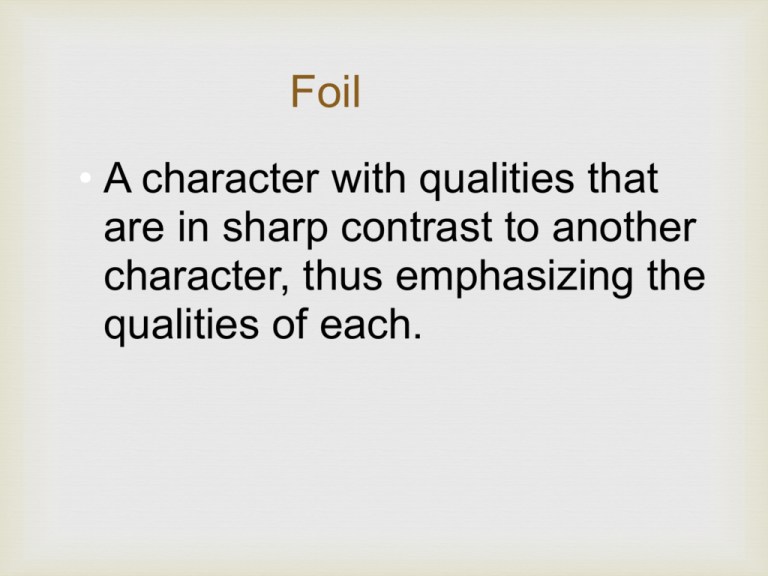
Foil • A character with qualities that are in sharp contrast to another character, thus emphasizing the qualities of each. Foreshadowing • A hint about what is to come in literature or what the outcome of the conflict will be. Simile/Metaphor • Simile • Comparison using “like” or “as” o Her face is like a summer’s day… • Metaphor • Comparison not using “like” or “as” o “I am the East, and Juliet is the West…” Conflict • External o Man o Man o Man vs. Man vs. Nature vs. Society • Internal o Man vs. Self Protagonist/Antagonist • Protagonist • Main character who is in conflict with the antagonist and whom the audience is intended to most identify with. • Antagonist • Character that represents the opposition against which the protagonist must contend. Soliloquy/Monologue/Aside • Soliloquy • Long speech given by a character while alone on stage to reveal his or her private thoughts or intentions to the audience. • Monologue • Character speaks at length to the audience or another character without the expectation of a response. • Aside • Character’s brief, quiet remark to the audience or another character that no one else on stage is supposed to hear. Irony/Dramatic Irony .Irony • Contrast between appearance and reality • Dramatic Irony • Audience or reader knows something the other characters do not know Blank Verse • Written like poetry but tells a story • Free-flowing rules - doesn’t have a rhyme scheme or set number of lines Iambic Pentameter • Lines have a rhythm to them • 10 syllables • Pattern of stressed and unstressed syllables He JESTS at SCARS that NEV er FELT a WOUND But SOFT! what LIGHT through YON der WIN dow BREAKS? Alliteration/Pun • Alliteration Group of words that begin with the same letter or sound o desire doth in his deathbed lie • Pun Play on words o "Vandals destroyed many road signs. They really pulled out all the stops." Ballad: a poem or song narrating a story in short stanzas. Traditional ballads are typically of unknown authorship, having been passed on orally from one generation to the next as part of the folk culture. Sonnet: a poem of fourteen lines using any of a number of formal rhyme schemes, in English typically having ten syllables per line. Sonnet 130 My mistress’ eyes are nothing like the sun; Coral is far more red than her lips’ red; If snow be white, why then her breasts are dun; If hairs be wires, black wires grow on her head. I have seen roses damask’d, red and white, But no such roses see I in her cheeks; And in some perfumes is there more delight Than in the breath that from my mistress reeks. I love to hear her speak, yet well I know That music hath a far more pleasing sound; I grant I never saw a goddess go; My mistress, when she walks, treads on the ground: And yet, by heaven, I think my love as rare As any she belied with false compare. Ode: a lyric poem in the form of an address to a particular subject, often elevated in style or manner and written in varied or irregular meter. Pindaric Ode: Ode to Aphrodite - Sappho (c. 630-570 B.C.) Deathless Aphrodite, throned in flowers, Daughter of Zeus, O terrible enchantress, With this sorrow, with this anguish, break my spirit Lady, not longer! Hear anew the voice! O hear and listen! Come, as in that island dawn thou camest, Billowing in thy yoked car to Sappho Forth from thy father's Golden house in pity!
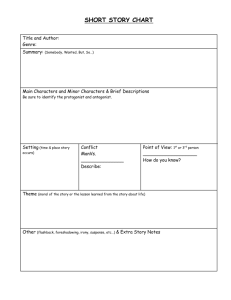
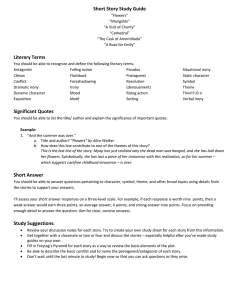
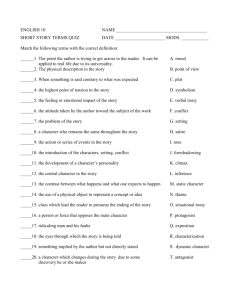
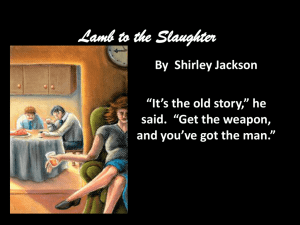
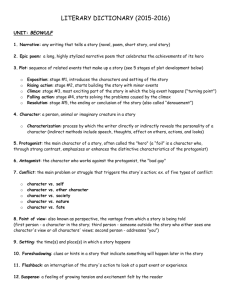
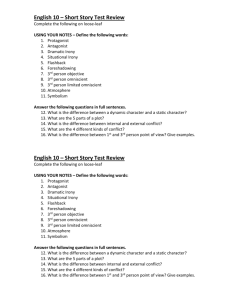
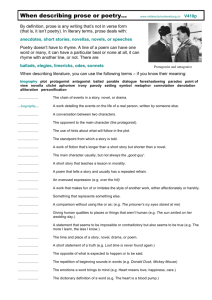
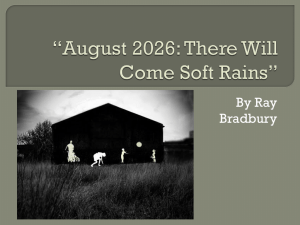
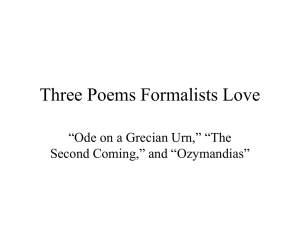
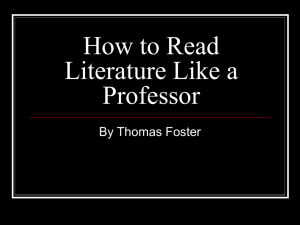
![Sappho of Lesbos [born c. 612 B.C.]](http://s2.studylib.net/store/data/013557115_1-db8ccd35153c5cc01877faa208c7ef0e-300x300.png)